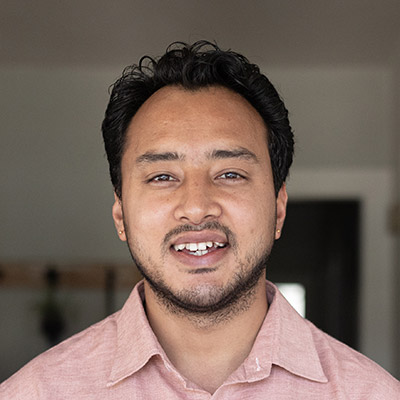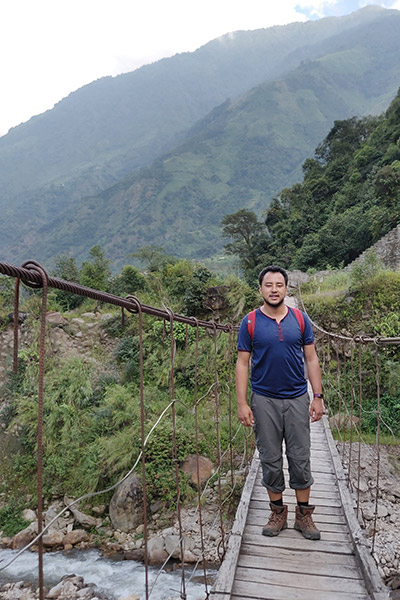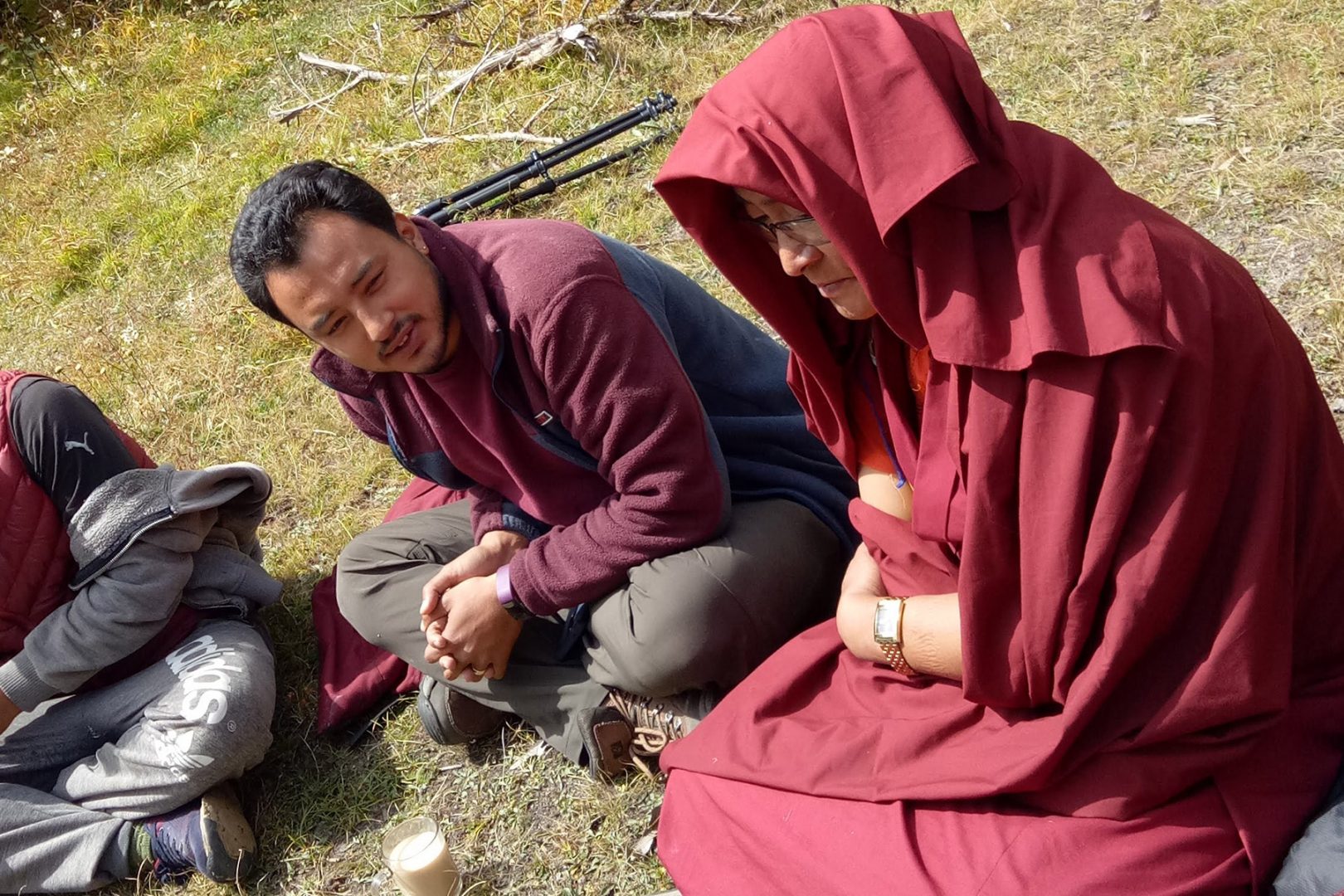Though the last issue of The Adventures of Tintin was penned long before his birth, Rupak Shrestha collects figurines and memorabilia associated with the fictional Belgian investigative journalist.
The first recipient of Eckerd College’s Predoctoral Fellowship for Scholars from Marginalized Groups says he got hooked into the cartoon as a child.
“There were things, colonial hints, to the series with Tintin going into the world as a savior,” Shrestha explains. “Still, I liked the idea of traveling around the world solving things more ethically.”
Shrestha is a native of Patan, Nepal, where he met his wife, Richa, in middle school. He moved to the U.S. in 2008 to pursue higher education—earning his bachelor’s degree at St. Cloud State University in Minnesota and a Master of Arts at Miami University of Ohio before doing his doctoral studies in the Department of Geography at the University of Colorado, Boulder. He’s currently working on a dissertation titled The Border Came In-Between Us: Tibetan Intimacy, Chinese Extra-territorial Sovereignty, and Security/Development in Nepal. An ad for Eckerd’s new fellowship in The Chronicle of Higher Education caught his attention.
“Rupak’s research and teaching interests include Refugees, Borders, Migration, Sovereignty, Development and Security, South Asia, Nepal and the Himalaya, Feminist Methodologies, and Visual Geographies,” according to Suzan Harrison, Ph.D., Eckerd’s vice president for academic affairs and dean of faculty. “His range of teaching and research interests will provide him rich opportunities to connect with faculty and students across our curriculum.”
Pre-pandemic, Shrestha used to travel to Nepal twice annually to visit family and also traveled to mountain villages to conduct research. Some of the treks would take five to six days because of the difficulty of the terrain. Joining a college committed to global education was an added bonus.

Rupak Shrestha is the first recipient of Eckerd College’s Predoctoral Fellowship for Scholars from Marginalized Groups.
“My course [that I will teach this fall] is called Borders and Belonging, and it really gets to the heart of the imaginary lines that can be contested, and many communities have framed their identities around these claims over place,” Shrestha says. “For first-year students, it’s an introduction to the ideas of how we belong in the world and what happens when that sense of belonging is disrupted.”
Though he’d rather be around mountain landscapes, Shrestha said he’s looking forward to living near the beach. The New York Times daily reader and moka-pot coffee brewer is relishing the opportunity to return to small classrooms like those in his undergraduate experience to really engage with students in the liberal arts tradition.
“One of the things I want to bring to this fellowship is commitment to diversity in my own scholarship. I advocate for learning from multiple texts, visuals and experiences,” he explains. “I really value these experiential opportunities, and instructors who do this really well [in the classroom] are able to use their own experiences as well as their students’.”
Shrestha will be an honorary member of the Political Science and International Relations and Global Affairs programs while at Eckerd. Associate Professor of Religious Studies Amy Langenberg, Ph.D., will serve as his faculty mentor. He’ll teach one course each semester and one during Winter Term, offer public presentations on his research, and participate in the College’s efforts and events related to diversity, equity, inclusion and belonging.














